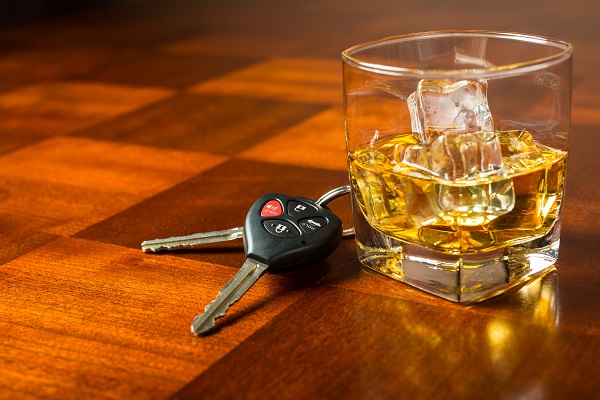DWI vs. DUI in Missouri – Is There a Difference?

Every state makes its own DWI laws. While there exist some commonalities throughout the country, on a state-by-state basis, the local laws dictate how law enforcement officials handle the crime. When there is a question as to a driver's ability to drive, law enforcement is the first line of defense. Some states classify impairment driving charges differently, so when traveling between states, becoming familiar with some of the most common terms is recommended. Discover what some of the most popular acronyms used by law enforcement mean and, more specifically, they mean under Missouri law.
The difference between a DWI and a DUI in Missouri
Throughout the country, two terms seem to take center stage when it comes to drinking and driving: DWI and DUI. DWI means driving while intoxicated, and DUI means driving under the influence. Under Missouri law, there is no difference. Both terms are interchangeable and say that a driver is legally impaired by alcohol with a blood alcohol content of .08% or higher.
A typical drunk driving investigation
The National Highway Traffic Safety Administration states that 30 people die in drunk driving accidents daily. This startling statistic is just one reason law enforcement agencies make every effort to take impaired drivers off the streets. While jurisdictions may set procedures for drunk-driving investigations, there are some standard elements.
The initial stop
When someone in law enforcement suspects a driver is operating a vehicle while impaired, there are specific steps that the officer must take before making these charges. First, there must exist an underlying reason for the traffic stop. The officer must witness the driver breaking the law before pulling them over. Here are some common examples of routine traffic violations:
- Erratic speed
- Failure to maintain the lane of travel
- Not adhering to traffic control devices
In addition to these, the officer may find something wrong with the vehicle, such as a broken tail light or obstructed license plate. When an officer makes the stop, the impairment investigation begins. The officer notes any odor of alcohol emanating from the driver or vehicle. The officer may also recognize the signs of impairment in a driver's eyes. These observations help build the DWI case.
The breathalyzer
When an officer has a reasonable suspicion that someone is driving impaired, a variety of tactics may be used to prove the suspicion. The most common is a breathalyzer to measure the level of alcohol in a suspect's system. In most states, drivers who refuse a breathalyzer lose driving privileges for a statutory period. One requirement for getting a license is consent to submit to a breath or blood test when a police officer requests it. Upon denial, the driver must surrender the license.
Field sobriety test
A field sobriety test is a series of simple physical tasks that police ask drivers to perform on the scene. Along the tests skills are balance, the ability to follow directions and other fine motor skills. Some of the most common tests performed are heel-to-toe walk, single-leg balance and nystagmus gaze.
Conclusion
When accused of a DWI in Missouri, it helps to understand that it is the same as a driving under the influence charge. At either rate, it is a serious charge that one cannot ignore.
Request an appointment here: https://www.deanpricelaw.com or call Dean Price Law at (417) 865-2181 for an appointment in our Springfield office.
Check out what others are saying about our services on Yelp: Read our Yelp reviews.
Recent Posts
It is sometimes possible to challenge trial outcomes in Missouri by filing an appeal. However, appeals are handled differently from initial trials, as they focus on identifying and correcting legal errors rather than re-examining facts. A criminal appeals attorney provides essential support by identifying valid grounds for appeal, adhering to strict timelines, and advocating for…
A drug possession lawyer can provide essential protection for clients facing their first offense. Not only do these Missouri lawyers fight to protect constitutional rights, but they also work to ensure that opportunities for second chances remain accessible. With the support of an attorney, those facing charges can navigate the legal system with confidence, pursue…
A DUI defense attorney can provide legal guidance and representation following a charge for impaired driving. This charge is officially referred to as driving while intoxicated (DWI) in Missouri, although it is more commonly known as driving under the influence (DUI). Regardless of what you call it, early action and preparation play a major role…
A traffic offense lawyer provides strong legal support to help protect both your rights and driving record. These Missouri lawyers help clarify options and create a sense of direction from the very beginning, fighting against points, fines, and license restrictions. That is why hiring legal counsel results in a smoother, more favorable experience overall —…


